The Hospitality Game-Changer
How ROXBOX Revolutionizes Spaces with Containers
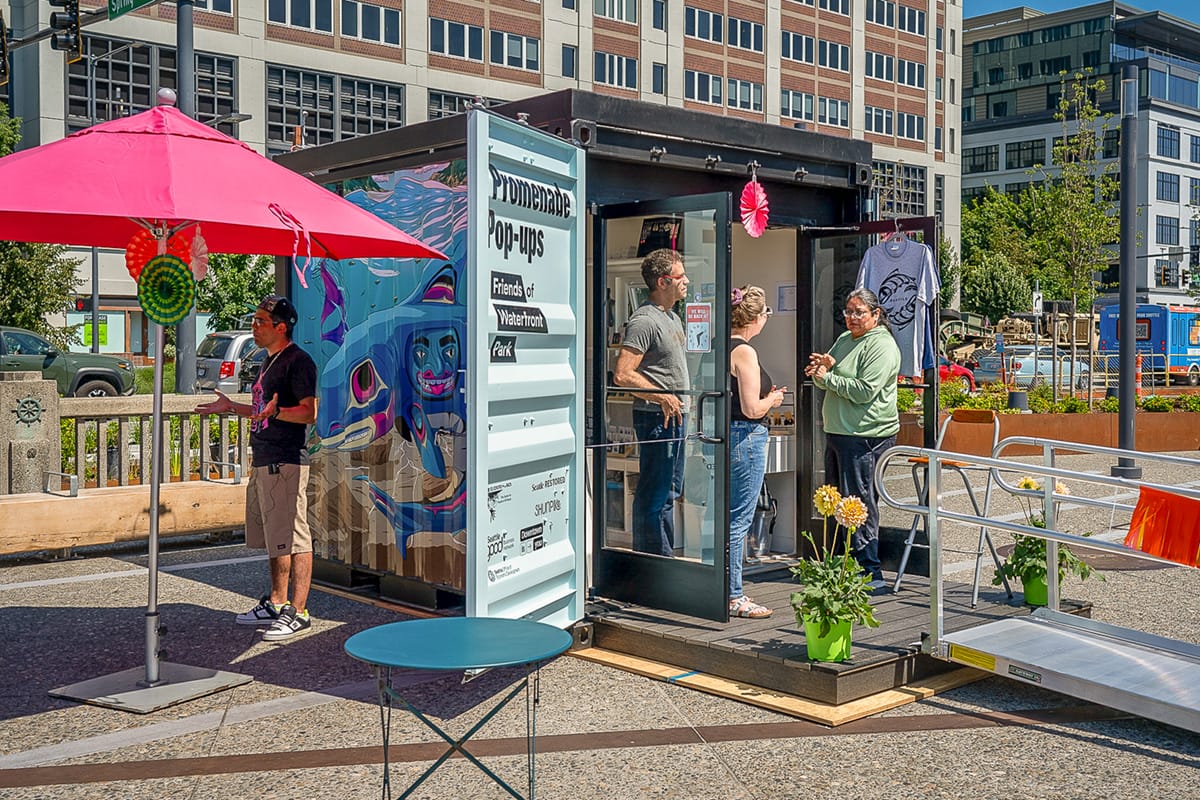
Seattle Waterfront Park Solar-Powered 10’ RetailBOX.
In a world where customer experiences make or break a brand, hospitality spaces are under more pressure than ever to stand out. For businesses in the hospitality industry - breweries, cafés, pop-ups, and beyond - creating a memorable space must balance speed, cost, and creativity.
At the intersection of these demands is ROXBOX Structures, a Denver-based leader in modular construction, whose innovative approach to repurposing shipping containers is reshaping how we think about hospitality design. From full-service bars to high-performance kitchens, ROXBOX has mastered the art of turning simple steel containers into captivating spaces that are both functional and unforgettable.
“Hospitality is about more than just providing a service - it’s about delivering an experience,” says Anthony Halsch, CEO of ROXBOX. “And that’s where containers thrive. They allow us to create spaces that are unique, efficient, and sustainable.”
The Perfect Canvas for Hospitality
Shipping containers are often associated with industrial use or global shipping routes, but their inherent design - durable, uniform, and transportable - makes them an ideal foundation for hospitality projects. They’re already engineered to endure harsh environments, translating into unparalleled structural integrity. And when reimagined through the creative lens of ROXBOX’s design team, they become sleek, modern spaces that captivate and inspire.
“They’re a builder’s dream,” Halsch explains. “The structure is already there, so we can spend our time focusing on how to customize and elevate them. Whether it’s cutting in glass walls or adding rooftop decks, we can create almost anything a client envisions.”
Take one of their standout projects: a two-story full-service bar crafted for a brewery. With a fully operational taproom and walk-in cooler on the ground floor, and an open-air deck on top, the structure was designed to create an immersive customer experience. Guests could enjoy their drinks while taking in stunning views - an experience that quickly became the brewery’s signature attraction.
“It wasn’t just a bar; it became the heart of the business,” says Halsch. “That’s what we aim for in every project - to go beyond functionality and create spaces people remember.”
How Containers Compare to Traditional Modular Construction
The broader modular construction industry often uses steel-framed modular buildings for their flexibility and scalability. While ROXBOX has carved out a niche where shipping containers excel, they recognize that sometimes a container isn’t the best fit for a project.
“Steel-framed modular buildings can offer greater customization in terms of size and layout,” Halsch explains. “For large-scale projects or unique configurations, they might be the better choice. We pride ourselves on offering both solutions, always with the client’s best interests in mind.”
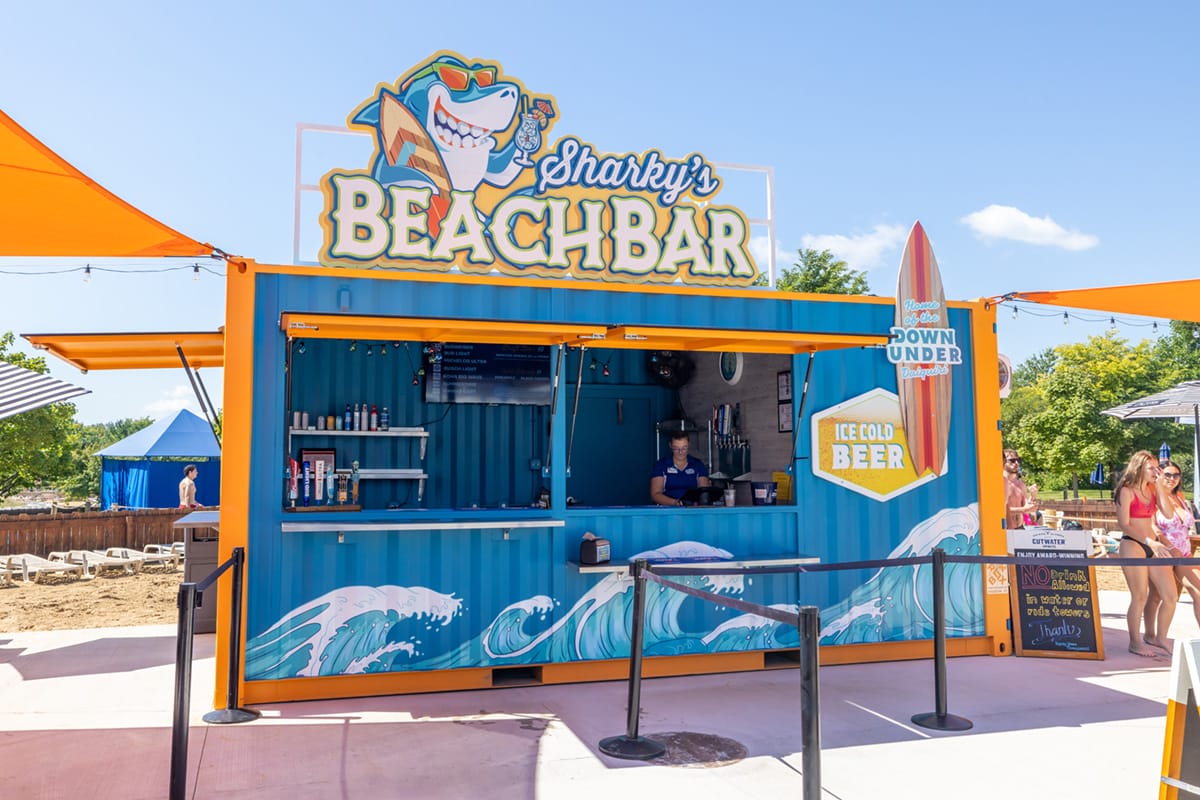
Raging Waves Waterpark 20’ BeerCAN Pro (Full-Service Shipping Container Bar)
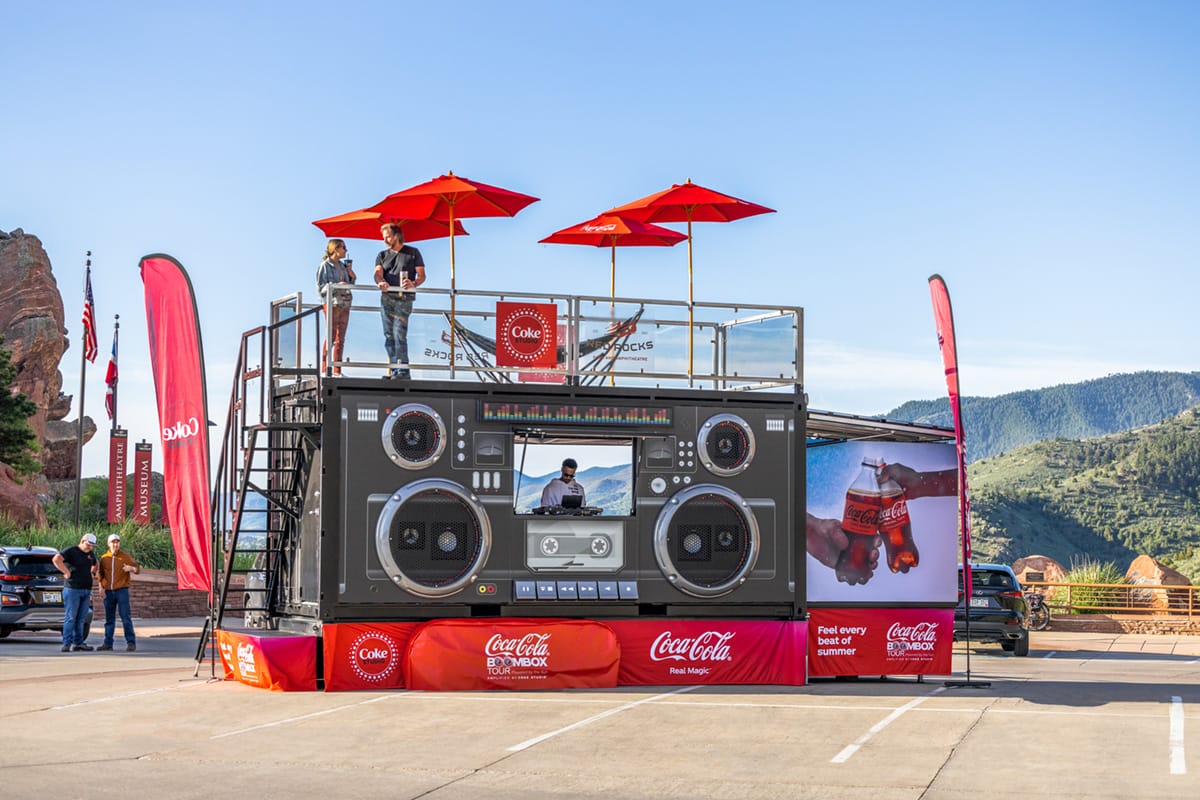
Coca-Cola BoomBOX (Customised ROXBOX Roadie Pro Model
That said, shipping containers bring distinct advantages to hospitality. Their pre-engineered durability and uniformity streamline the construction process, cutting down on labor, materials, and time. The result? Projects that are completed faster and at a lower cost.
“With containers, we’re able to streamline the entire process. From fabrication in our shop to on-site delivery, the efficiency is unmatched,” says Halsch. “And because containers are inherently portable, we can install them almost anywhere - urban areas, remote festivals, or parking lots. That flexibility makes them incredibly appealing to hospitality businesses.”
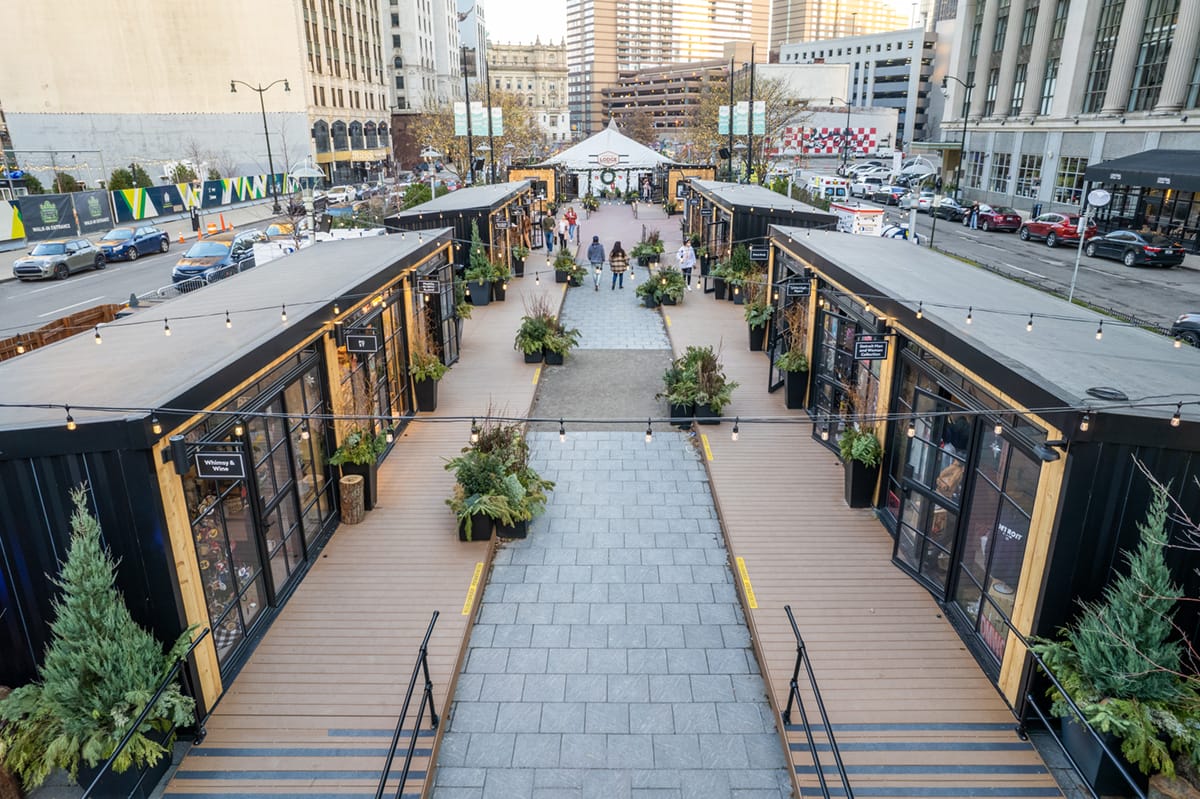
Detroit Holiday Market Retail Huts (Custom Steel Frame Modular Structures)
Elevating the Hospitality Experience
ROXBOX’s portfolio highlights the transformative potential of container- based design in hospitality. Whether it’s a mobile kitchen for off-the-grid events or a pop-up retail unit that creates buzz in a new market, their projects consistently demonstrate how containers can deliver high-impact results.
One of their most notable undertakings was a mobile commercial kitchen capable of supporting high-volume cooking for food trucks and festivals. Designed to function as a permanent structure but with the flexibility to relocate, the kitchen was outfitted with professional-grade equipment to rival any traditional space.
“The client was blown away when they realized they didn’t have to compromise on anything,” says Halsch. “We were able to deliver a space that not only met their needs but exceeded their expectations.”
Another success story was a drive-thru café for a coffee chain testing a new market. The container’s compact size allowed the client to operate in high-traffic areas with limited real estate, while the custom branding and modern aesthetic created a buzz that translated into immediate customer interest.
ROXBOX also played a key role in revitalizing the Seattle waterfront by providing solar-powered, mobile container-based structures used for retail and hospitality spaces, enhancing the area’s appeal to both locals and tourists. “It was an incredible opportunity to showcase how containers can transform public spaces,” says Halsch. “Our modular solutions created engaging environments for dining and shopping, demonstrating the versatility and value of these structures in high-profile urban projects.”
These projects underscore the growing appeal of containers in hospitality: compact, versatile spaces that prioritize both function and design.
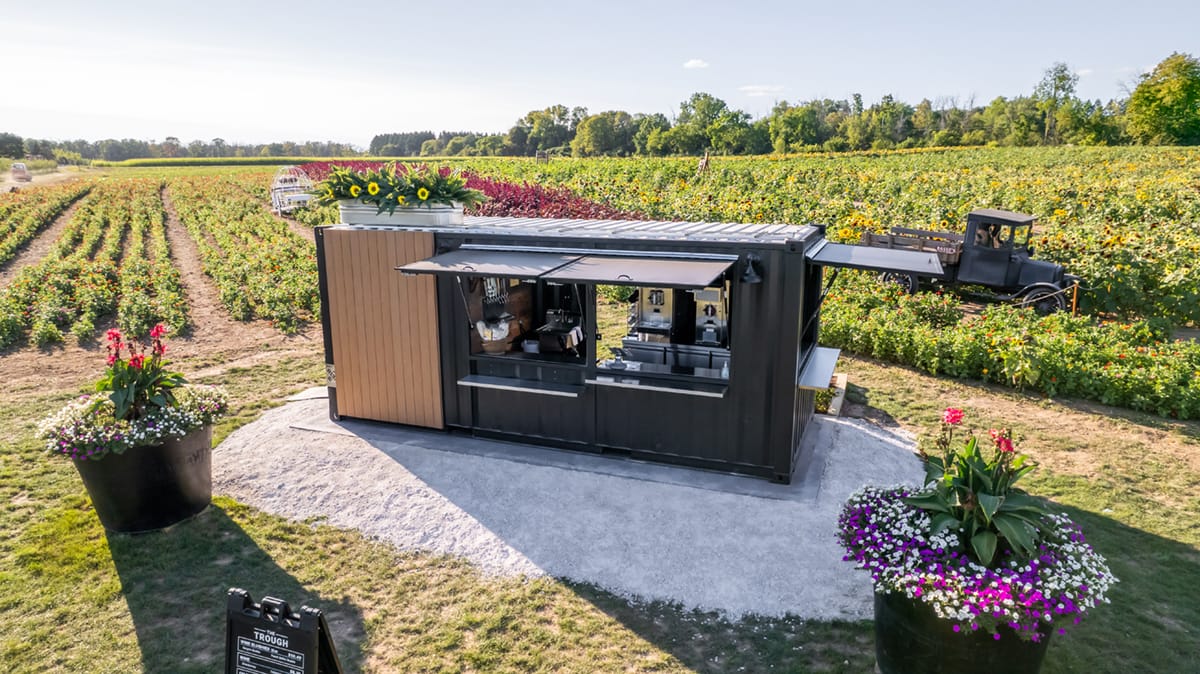
Basse’s Farms 20’ BeerCAN Pro (Full-Service Shipping Container Bar)
Why Containers Will Continue to Shape the Future of Hospitality Design
The hospitality industry is in constant flux, shaped by trends in customer behavior and economic realities. Shipping containers, with their versatility and efficiency, are uniquely positioned to meet these evolving demands.
For businesses, the benefits are clear: faster project completion, reduced costs, and sustainable building practices that align with modern values. For customers, the results are equally compelling - bold, dynamic spaces that feel as innovative as the experiences they offer.
Looking ahead, Halsch sees even greater potential for container-based construction. “We’re just scratching the surface of what’s possible,” he says. “As businesses continue to think creatively about their spaces, containers will play an even bigger role. They’re not just a trend - they’re a solution.”
For professionals in the modular construction industry, ROXBOX offers a blueprint for how to rethink the possibilities of hospitality design. By combining engineering precision with creative vision, they’ve created a model that delivers both beauty and practicality.
Meeting Customers Where They Are
ROXBOX’s customer-focused philosophy is as integral to its success as the containers themselves. Each project begins with a deep dive into the client’s goals, vision, and constraints, ensuring every solution is as unique as the story it aims to tell.
“It’s not about giving them a cookie-cutter solution,” says Halsch. “It’s about asking, ‘What’s the experience you’re trying to create? What’s the story you want to tell?’ Then we design a space that brings that vision to life.”
This collaborative approach allows ROXBOX to tailor every detail, from the placement of a window to the integration of high-efficiency equipment. Clients not only receive a product that meets their needs but also gain a trusted partner invested in their success.
And while cost and time savings remain significant selling points, Halsch believes the value ROXBOX provides goes deeper. “It’s about creating something that’s not just functional but meaningful,” he says. “These containers have a story to tell - they were once part of global trade, and now they’re being transformed into spaces where people gather, connect, and celebrate.”
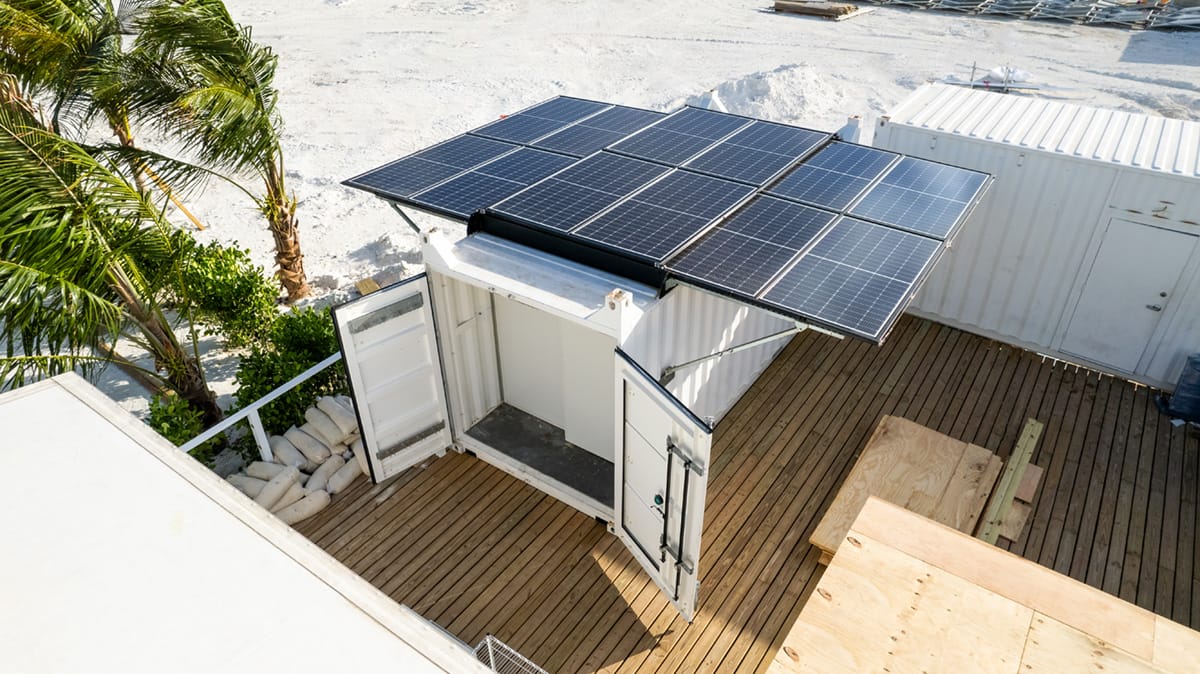
HELIOS Solarator™ 20’ Walk-In Cooler (Solar-Powered Industrial Refrigerator)
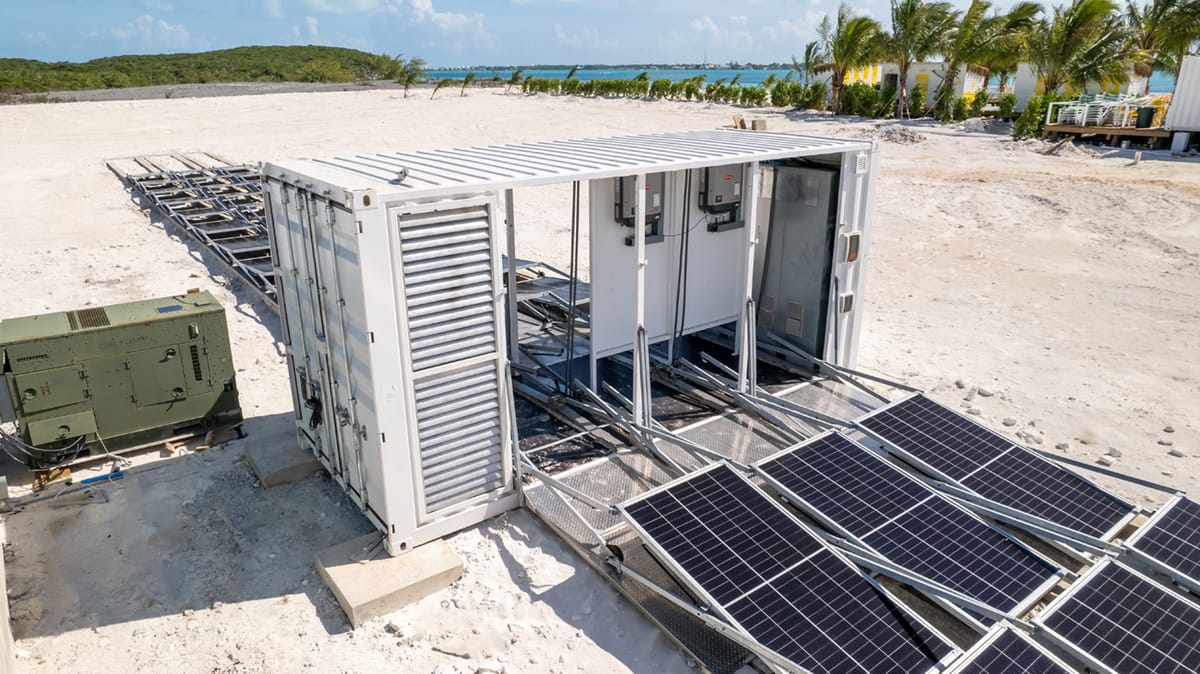
HELIOS Solarator™ Fold-Out 60 kW+ (Renewable Generator)
Looking Ahead: Building the Future
ROXBOX is not just focused on the present; they’re constantly looking toward the future. This forward-thinking approach is reflected in the company’s recent decision to rebrand as ROXBOX Structures - a name that better captures their expertise beyond just containers.
“Our goal is to continue pushing the boundaries of modular construction, exploring new ways to serve industries like hospitality while staying true to our roots,” Halsch explains. “We started with containers, but our expertise now extends to all kinds of modular solutions. Renaming the company reflects that evolution and our commitment to staying at the forefront of innovation.”
With their dedication to creating unique, efficient, and sustainable spaces, ROXBOX Structures is poised to lead the charge in reimagining what’s possible for hospitality and beyond. “We’re excited for what’s ahead,” Halsch says. “Containers will always be a part of our story, but as we grow, so does our ability to transform spaces and inspire new ideas. The future is modular, and we’re ready to build it.”
About the Author: John McMullen, PCM, is the marketing director for the Modular Building Institute. You can reach him directly at mcmullen@modular.org or on LinkedIn.
More from Modular Advantage
AoRa Development Aims for New York’s First Triple Net Zero Building Using Modular Methods
More cities are providing funding for newer infrastructure projects as long as they meet sustainability requirements. This is how modular can fit the bill, thanks to its lower waste production.
Developers and Designers: Lessons Learned with Modular Design
Modular construction is attractive to many developers because sitework and module construction can occur simultaneously, shortening the schedule and reducing additional costs.
UTILE: Putting Modular Building on a Fast Track
In Quebec, UTILE is taking the lead in creating affordable modular buildings to help decrease the student housing shortage. During the process, the company discovered what it takes to make the transition to modular building a success.
Sobha Modular Teaches Developers How to Think Like Manufacturers
With its 2.7 million square foot factory in UAE, Sobha Modular is bringing both its high-end bathroom pods to high-end residences to Dubai while developing modular projects for the U.S. and Australia.
RoadMasters: Why Early Transport Planning is Make-or-Break in Modular Construction
In modular construction, transportation is often called the “missing link.” While it rarely stops a project outright, poor planning can trigger costly delays, rerouting, and budget overruns.
Navigating Risk in Commercial Real Estate and Modular Construction: Insights from a 44-Year Industry Veteran
Modular projects involve manufacturing, transportation, and on-site assembly. Developers must understand exactly what they are responsible for versus what they subcontract. Risk advisors should research the developer’s contractors, subcontractors, and design-build consultants—especially the modular manufacturer.
Art²Park – A Creative Application of Modular and Conventional Construction
Art²Park is more than a park building—it’s a demonstration of what modular construction can achieve when thoughtfully integrated with traditional materials. The use of shipping containers provided not only speed and sustainability benefits but also a powerful structural core that simplified and strengthened the rest of the building.
Building Smarter: A New Standard in Modular Construction Efficiency
Rising material prices, labour shortages, expensive financing and tightening environmental rules have made conventional construction slower, costlier, and more unpredictable. To keep projects on schedule and within budget, builders are increasingly turning to smarter industrialized methods.
Resia: Breaking All the Rules
Resia Manufacturing, a division of U.S.-based Resia, is now offering prefabricated bathroom and kitchen components to industry partners. Its hybrid fabrication facility produces more precise bathroom and kitchen components (modules) faster and at lower cost than traditional construction. Here’s how Resia Manufacturing does it.
How LINQ Modular Innovates to Bring Modular To The Market in the UAE and Beyond
LINQ Modular, with an office and three manufacturing facilities in Dubai, is a modular firm based in United Arab Emirates. The company is on a mission: to break open the housing and construction markets in the Gulf Cooperation Council (GCC) area with modular.










